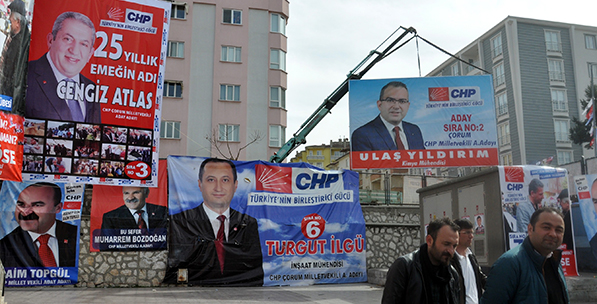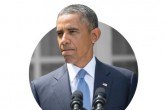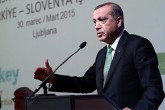Turkey is a very interesting country home to dramatic contradictions. In certain eras characterized by political and economic stability, it rapidly acquired speed and realizes difficult structural transformations to the surprise of international circles. But it also carries in its collective memory the legacies of instability and systemic chaos derived from long decades of socio-political turmoil and military coups in the past. That is exactly why in sensitive periods on the eve of critical elections it has become customary to observe extraordinary developments in the form of domestic shocks designed to influence voters’ decisions. Some of these extraordinary incidents are directly aimed to create a fake sense of chaos or the appearance of national mismanagement. But facts always prevail over fiction and they indicate that the new Turkey has proved over and over again that it is resilient in overcoming systemic shocks and continues on its path to democratic consolidation and socio-economic development.
When we observed the sequence of extraordinary incidents this week in the form of an unprecedented nationwide power outage, a terrorist attack that took the chief prosecutor of a critical case related with the Gezi Park protests hostage in the middle of the biggest courthouse in the country that sadly ended with the death of the prosecutor and the terrorists and a foiled terrorist attack on Istanbul Police Department headquarters, we said to ourselves that it is that time again. It is time for the launch of another crisis scenario before the elections in June to reflect Turkey as a country struggling with national security lapses, harshening domestic opposition and political polarization on top of the alleged economic fragilities due to the recent rise in the value of the dollar against the lira.
At a deeper level of analysis, this state of affairs is related to the prolonged dominance of the Justice and Development Party (AK Party) in Turkish politics, which has created an air of acute pessimism across the bulk of legal political opposition. Neither the core organizational teams nor the electoral bases of opposition parties believe that they could possibly conjure up effective strategies to stop the continuation of AK Party dominance in the polls. This hopelessness is wrongly translated into open or camouflaged support for street violence, paramilitary groups, media operations and international attempts to manipulate political perceptions hoping to undermine popular support for the incumbent government. In the aftermath of the Gezi Park protests in 2013 during which marginal leftist groups and terrorist organizations coalesced to prompt street violence on the back of environmentalist protests, such operations to instigate a milieu of systemic chaos and instability became ordinary.
Yet Turkish society mainly stood firm at critical conjunctures and made its support for the continuation of political-economic stability in a democratic environment loud and clear. Its deep social intelligence and virtues indicated that exaggerated chaos scenarios constitute a politically manipulated façade and fictitious realities. Despite being an emerging economy with crucial developmental needs, Turkey has gone a substantial distance in terms of consolidating its regulatory state, its municipal and public services, its industrial infrastructure and democratic institutions. Critiques accusing the government of mismanagement due to the nationwide power outage, which stopped industrial production and daily life across the country, were out of line. It could have resulted from a technical problem in the sophisticated energy provision infrastructure that was established after the privatization of power stations, but the possibility of it being a cyberattack has not been discarded. Yet this single incident could not put a dark curtain on the billion-dollar investments that Turkey made, including nuclear energy, for the improvement of energy infrastructure.
To reiterate, facts speak louder than fiction. And th


